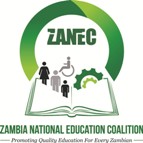
The Members of Parliament from the Education, Science and Technology Parliamentary Committee present
Ministry of Higher Education Representative
Higher Education Loans and Scholarship Board (HELSB) Representative
Disaster Management and Mitigation Unit (DMMU) Representative
Zambia Information and Communications Technology Authority (ZICTA) Representative
Rural Electrification Authority (REA) Representative
Mobile and Internet Data Providers Companies present
Academicians from various universities present
Students from various universities present
ZANEC Members, Board and Staff present
Members of the Press present
May I Simply say Ladies and Gentlemen
All Protocols Observed
First and foremost, I would like to welcome you all distinguished guests to this advocacy initiative meeting entitled “Impact of COVID 19 Pandemic in accessing equitable and inclusive quality education in institutions of higher learning: The case of Zambia”. As we may all be aware, the COVID 19 Pandemic has significantly impacted our society and our ways of life. It is further important to note that the education sector has not been left out.
For those of you who may not be aware, ZANEC is a Coalition of non-state actors working in the Education and Skills Sector. The organization is involved in research, advocacy and member capacity building on different aspects of the Education and Skills Sector in Zambia. ZANEC members comprise of Community Based Organizations (CBOs), Faith Based Organizations (FBO’s), Non-Governmental Organizations (NGOs), Teacher Trade Unions and Student Unions. The membership of ZANEC currently stands at 81 Member Organizations spread across the country.
Ladies and Gentlemen
The impact of COVID 19 resulted in the closure of the learning institutions and students were forced to start attending virtual classes. The initiative was however hampered by a number of challenges including high cost of data bundles and poor connectivity in some places. Further, learners or students from vulnerable homes were not able to access the online learning because of lack of ICT gadgets for accessing internet. Lack of Electricity in some places was another huge impediment.
Furthermore, most employees have lost jobs due to the economic challenges that have come as a result of COVID 19, while those in the informal sector are also facing serious economic challenges. Therefore, most parents were unable to raise the high fees that are required in higher learning institutions when they reopened. For some parents, this includes the fees for the deferred examinations that were set for December, 2020 in some of the institutions.
Therefore, this meeting will discuss measures that can reduce the impact of COVID 19 and other future calamities on access to quality, equitable and inclusive higher and tertiary education. This meeting will also deliberate on the effectiveness of online learning by examining issues of data costs and how institutions could improve online learning. We will also discuss ways of reducing the overall impact of the COVID 19 pandemic on education. It is important to mention that in this meeting we have not only invited the traditional education actors but also organisations and companies such as DMMU, ZICTA, REA as well as companies that provide online services and data like Zamtel, Airtel, MTN to show that quality access to education that is all inclusive especially in the modern times and during calamities like COVID 19 calls for concerted effort by all. Gone are the days when we were working in isolation. It is also for this reason that the Education and Skills Sector Plan (ESSP) as well as other national development plans promote integration between ministries and various government departments as an effort to ensure that no one is left behind. This meeting will provide a platform for dialogue that will provide solutions and / or approaches for sustaining learning at home that is inclusive as provided for under Sustainable Development Goal (SDG) 4 which calls on states to ensure inclusive and equitable quality education and promote lifelong learning opportunities for all.
The aim of this meeting therefore, ladies and gentlemen is to advocate for access to sustained inclusiveness and equitable education whether physical or remotely in our institutions of higher learning. Furthermore, academic freedom for students should be always upheld even amidst calamites like COVID 19.
Ladies and Gentlemen
ZANEC would also like to take this opportunity to thank our partners the Youth Empowerment and Transformation Trust (YETT) for their support which is part of their regional project dubbed “Student Academic Freedom Regional Advocacy Program (SAFRAP)”, whose main aim is to create an inclusive environment within which students can participate in the governance and pursuit of inclusive, equitable quality higher and tertiary education. We therefore, appreciate YETT for making funds available to hold this meeting.
Finally, I urge us all to participate fully in the deliberations of this meeting.
I thank you and God bless you all.
Find Us on Social Media